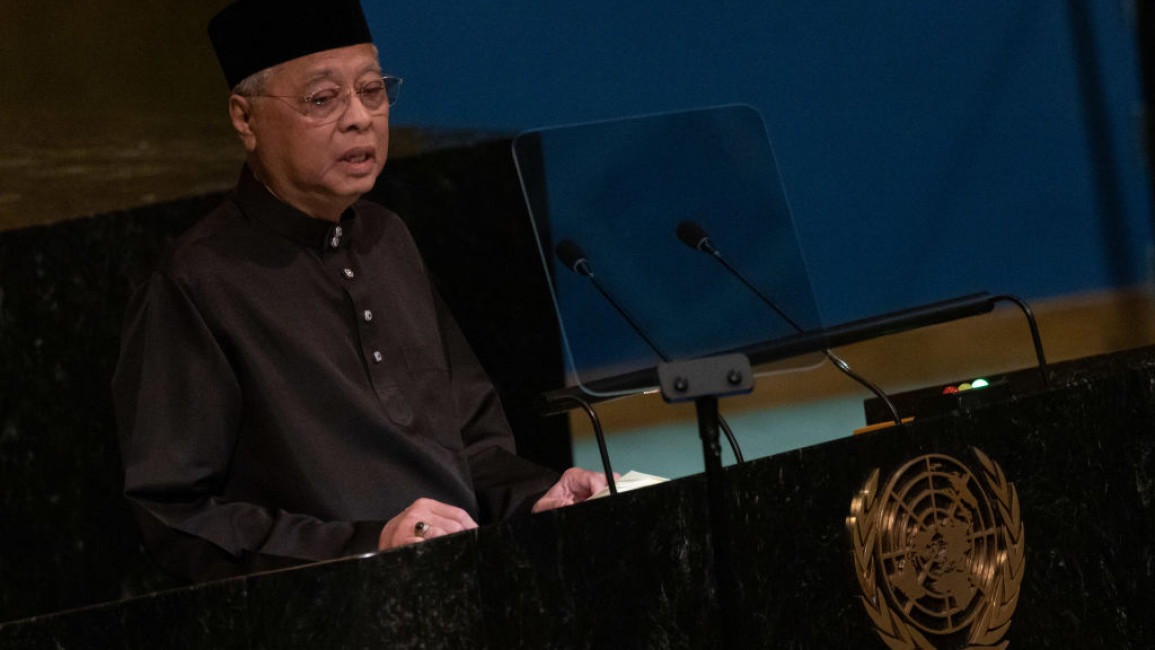Malaysia PM Ismail dissolves parliament, calls snap election
Malaysian Prime Minister Ismail Sabri Yaakob announced that Parliament will be dissolved on Monday, paving the way for general elections that are expected to be held in early November.
The elections would come nine months before parliament's term expires, following calls for early polls from Ismail's United Malays National Organisation.
UMNO, the biggest party in the ruling coalition, was feuding with its allies and is aiming for a big win on its own.
Ismail said he met on Sunday with King Sultan Abdullah Sultan Ahmad Shah, who consented to the dissolution.
He said he decided to call early polls to counter criticism over the legitimacy of his government – the third since 2018 polls.
"With this announcement, the mandate will be returned to the people. The people’s mandate is a powerful antidote" to create a firm and stable government, Ismail said in a televised announcement.
The Election Commission is expected to meet within the week to announce a date for the vote, which must be held within 60 days from Parliament’s dissolution.
It is likely to be held in early November before the year-end monsoon season that often brings devastating floods.
UMNO's allies in the government and opposition parties have protested any plans to hold elections during the monsoon season, which last year killed more than 50 people and displaced thousands.
But UMNO's top leaders decided recently that polls must be called this year for UMNO to capitalise on the return of ethnic Malay voters and an opposition in disarray.
"Ismail Sabri has succumbed to pressure by his party UMNO, serving the shortest tenure as a PM, and entering the country into polls during a dangerous season of monsoon floods," said Bridget Welsh, a Southeast Asia expert with Malaysia's Nottingham University.
"UMNO believes it has the advantage with early polls and has maintained pressure as they hope to return to power as the dominant party," she said.
UMNO led Malaysia since independence from Britain in 1957, but was brought down in 2018 elections by a multibillion-dollar financial scandal that saw ex-Prime Minister Najib Razak imprisoned for 12 years for graft.
Malaysia's highest court on Tuesday upheld former prime minister Najib Razak's 12-year jail sentence for corruption in the 1MDB financial scandal 👇#NajibRazak #Malaysiahttps://t.co/TFkxXoTosA
— The New Arab (@The_NewArab) August 24, 2022
The party's current president Ahmad Zahid Hamidi is also on trial for graft.
UMNO returned to power in March 2020 as part of a mainly Muslim coalition government after the reformist alliance led by former Prime Minister Mahathir Mohamad collapsed due to defections.
The new government was unstable due to a razor-thin majority in parliament, and then-Prime Minister Muhyiddin Yassin was forced to resign 17 months later after some UMNO lawmakers withdrew support for him.
Ismail, who was Muhyiddin's deputy, was appointed by the king in August 2021 to take over the helm, returning the premiership to UMNO.
But UMNO remained at odds with Muhyiddin's Bersatu and another Islamic ally, who all vie for support from ethnic Malay Muslims who account for over 60 percent of Malaysia's 33 million people.



